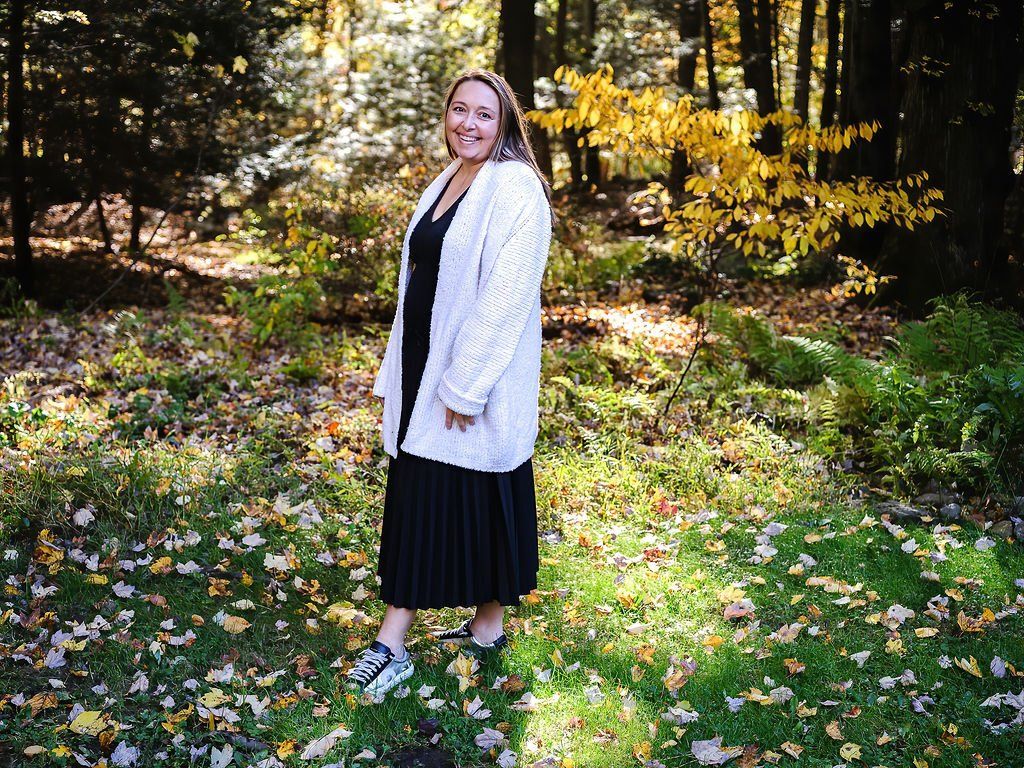How to Reduce Your Carbon Footprint in 2023: Parenthood Edition
Whether you're a parent or not, everyone wants to leave the world in better shape than they found it. And with the world's population projected to increase by 2 billion people by 2050, it'll be up to us parents—and the actions we take today—to set our kids on a path toward sustainability and responsibility. That means that if we want our kids to grow up with sustainable habits (and save some money in the process), we're going need to get started now! So here are five simple ways you can reduce your carbon footprint as a parent:

Take your kid on a nature walk
This is an easy one to start with, and it's also a great way to get you and the kids out of the house. Take them on a nature walk, whether it be in your neighborhood or at a park nearby. Explain to your child that we need to take care of nature because it helps us breathe, drink water, and feel safe from dangerous animals. We can also help save nature by taking shorter showers (or no shower at all), recycling our trash, turning off lights when we're not using them and unplugging appliances when we're not using them either! In addition to protecting the environment from pollution, which helps keep it clean for all living things on earth...
Let your kids do chores and make them do chores with you
In a study of children’s perceptions on climate change, researchers found that kids who perceived their parents as being more environmentally conscious had a greater understanding of climate change.
Although the results did not show an association between parental eco-consciousness and a child’s willingness to engage in pro-environmental behaviors (i.e., reduce electricity use, participate in recycling programs), they did find that children who perceived their parents as being more eco-conscious were more likely to believe that humans are contributing to global warming.'
Parents can take steps towards educating their children about environmental issues by participating in activities with their children that help them understand how their actions affect the environment. For example, creating gardens and other areas where plants can grow is an excellent way for both parents and kids to learn about sustainable living practices such as composting food waste so worms can eat it up instead of throwing it away or using pesticides which pollute local water sources (which might be close enough for kids riding bikes nearby).
Take your kids to the farmer's market and local butcher
Why the farmer's market? The answer is simple: you get to buy things like fresh berries and vegetables grown nearby. You know that they are organic, because no chemicals were used in their cultivation. You know that they are healthy for you and your family, because there was no need for pesticides or chemicals on them. And you know that your money is going directly back into the community through local farmers who love what they do as much as possible.
As for why this is important...there are many reasons behind the decision to buy locally raised produce instead of from a big-box grocery store or other non-local sources (including cheaper prices!), but here's just one example: buying local reduces carbon emissions because it means less transportation required!
Buy new household items from second-hand shops
-Buy new household items from second-hand shops.
-Don't buy new clothes for your kid; go to a thrift store or consignment shop, where you can get quality clothing at bargain prices!
-Don't buy toys for your kids; borrow them from a friend instead! You'll save money, and if the toys are damaged or lost at some point, it won't be devastating because they weren't expensive in the first place!
-Don't buy furniture either: just find something on Craigslist that's cheap enough to suit your needs and be done with it!
Compost together with your kids
Composting is easy for kids to learn. It's a great way to teach them about recycling, and it's always fun to have the opportunity to play in dirt. Plus, you can feel good knowing that your family is helping save the planet when you reduce waste by turning it into something useful!
-Start by learning what can and cannot be composted at home. There are many different types of compost bins available online or at hardware stores that make it easy for anyone in your family to participate in this process—even if they're just toddlers!
-Before making any decisions about which kind of bin would work best for your needs, consider how much space you have available outside (or indoors) as well as how much attention you want/need from each member of your household during this process.
-Once you've decided on a container for storing all of those scraps from dinner time through school lunches tomorrow morning (do note: children love helping out with these things), make sure everyone knows where everything goes once they're done eating their meals so nothing gets left behind accidentally later on down the road when everyone starts getting tired again around dinnertime next week...again...and again after that until finally no one even wants food anymore because there isn't any left anyway!"
Proceed with caution when it comes to plastic in toys
Plastic is a very useful material. It's durable, lightweight, and impervious to heat and cold—and that makes it perfect for use in everything from toys to medical devices to takeout containers.
But not all plastics are created equal. Some types of plastic are better than others when it comes to the environment. And recycling isn't always an option with certain types of plastic (like those used in food packaging). So how do you know what type of plastic is best? The answer depends on whether you're looking at non-biodegradable or biodegradable plastics, as well as what you plan on using it for—if you're buying toys or clothing made from materials like nylon and polyester (which are often mixed with recycled content), then these products can have a smaller carbon footprint than their non-recycled counterparts!
If your child has developed a serious attachment to their favorite toy truck but doesn't want his or her face melted by hot sunbeams after hours outside playing fetch with Fido all day long under blistering 90 degree heat waves then maybe consider going green next time around by opting out of purchasing new toys altogether - because nothing says "I love nature" like reusing old one's!
Kids are malleable, teach them about sustainability early!
Kids are malleable, teach them about sustainability early!
Teaching your kids about sustainability is an important step in reducing the carbon footprint of your family. Children are very impressionable and can be easily influenced by the actions of their parents. If you want to get your children on board with sustainability efforts at home, it's best to start young. From making sure they recycle their toys when they're done playing with them to giving them a vegetable garden in which they can grow their own veggies, there are many different ways that you can incorporate sustainable ideas into your kid’s everyday life.
Teaching kids about sustainability will not only help reduce the amount of trash that goes into landfills but also teach them how important it is for everyone to do their part when it comes to preserving our earth for future generations!
Conclusion
We know that living sustainably can seem daunting, but we also know that it's not impossible. In fact, if you follow these tips and teach your kids to be green from a young age they'll likely bring their values into adulthood with them! That's why being a parent (or just an adult in general) is such an important time for teaching kids about sustainability: the sooner we start teaching our children about caring for the environment and limiting their carbon footprint on Earth, the better off we'll all be as a species.





